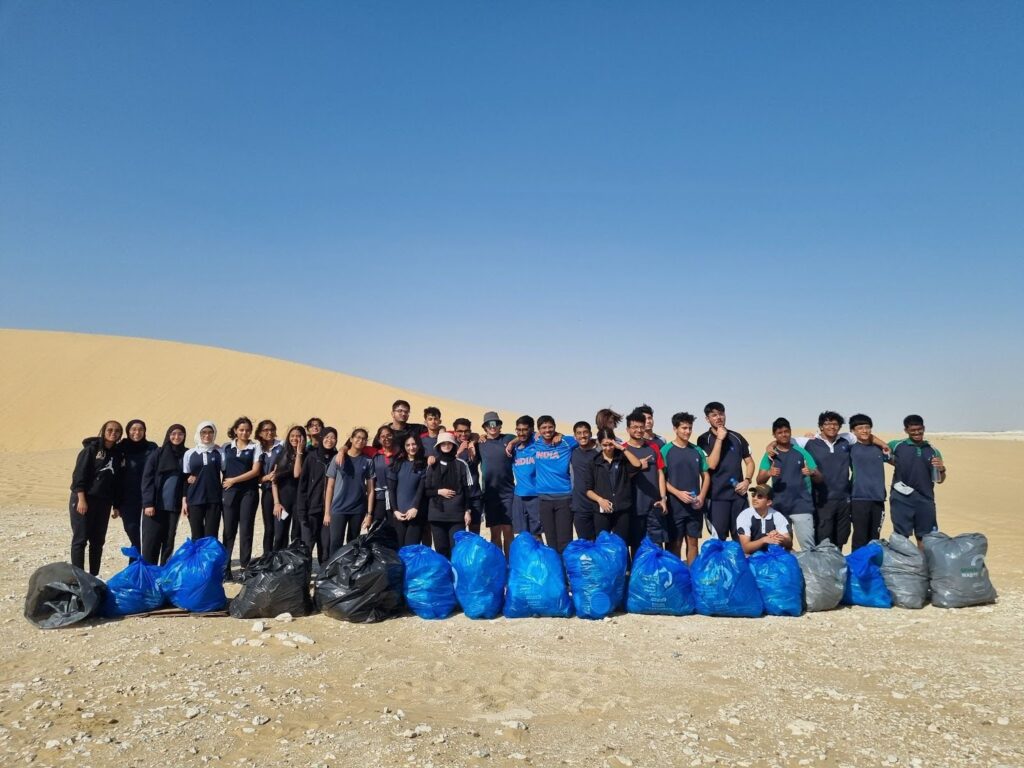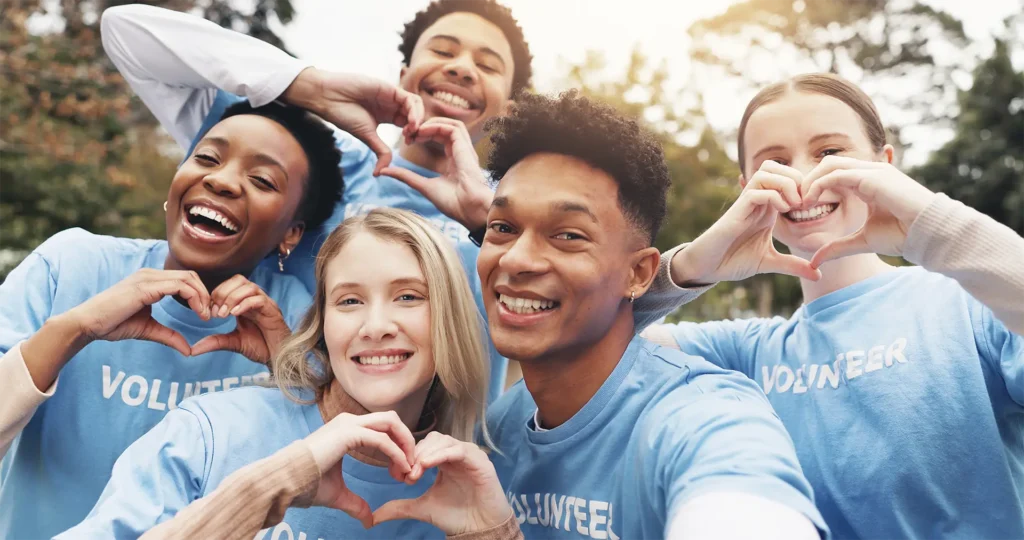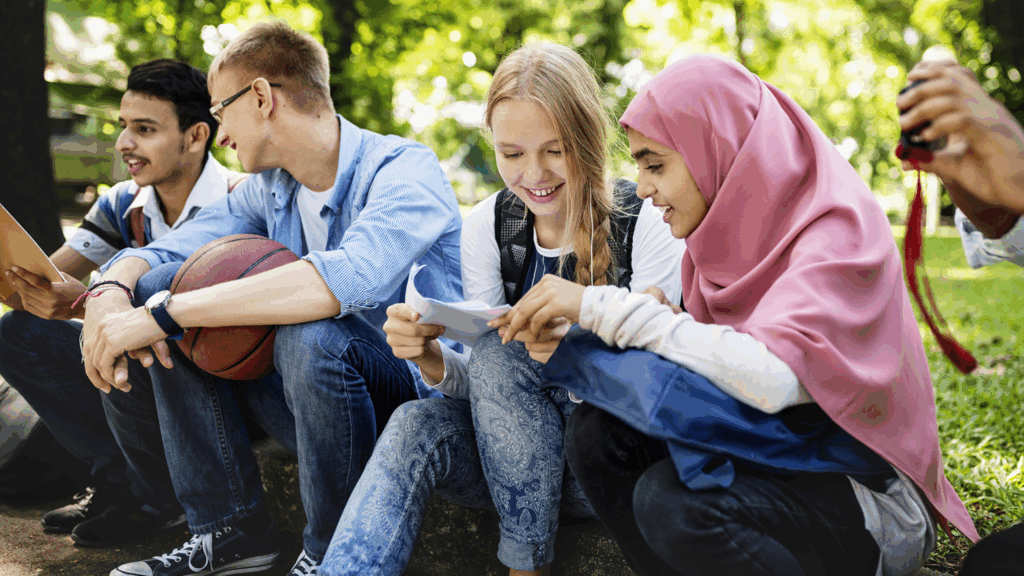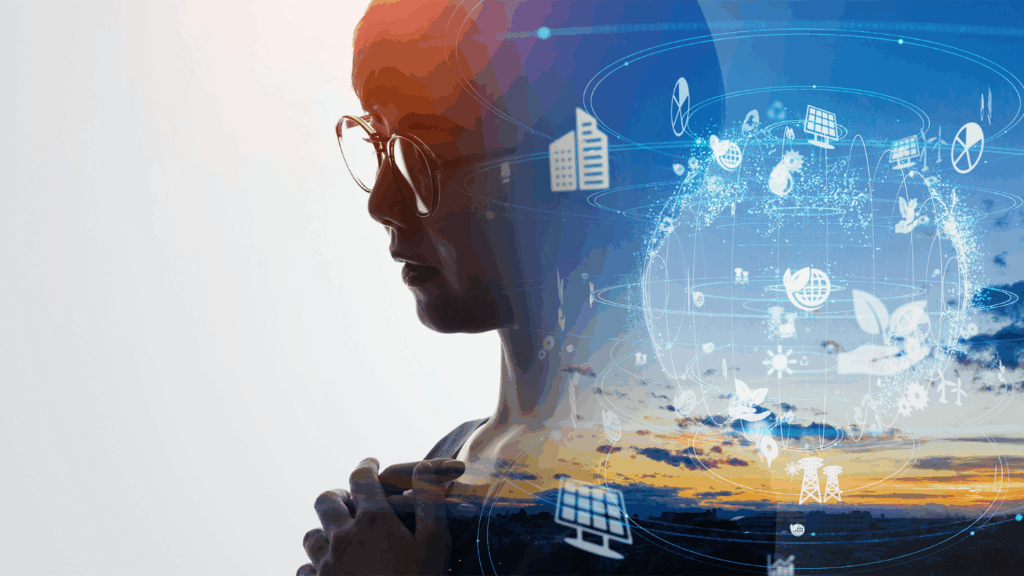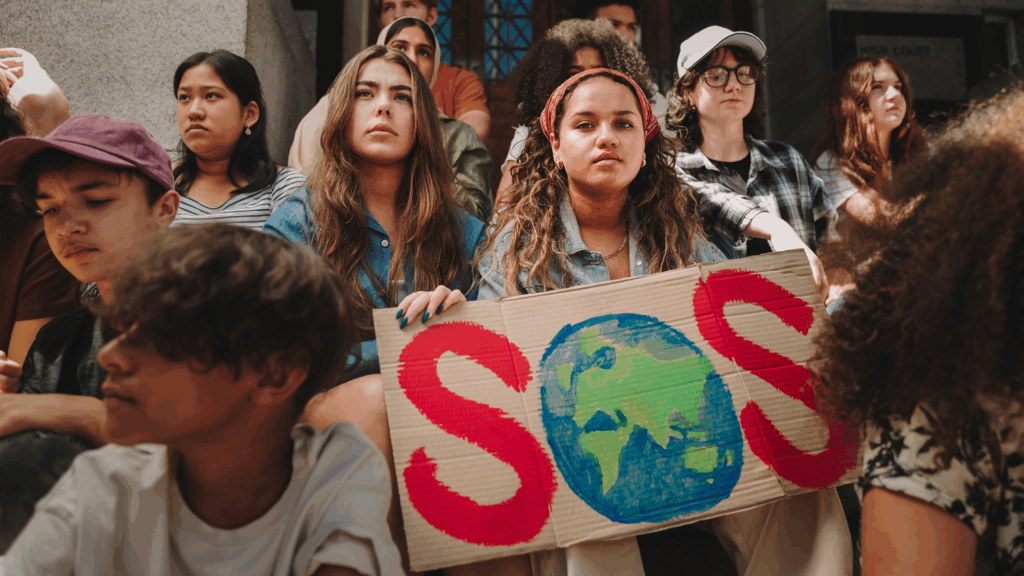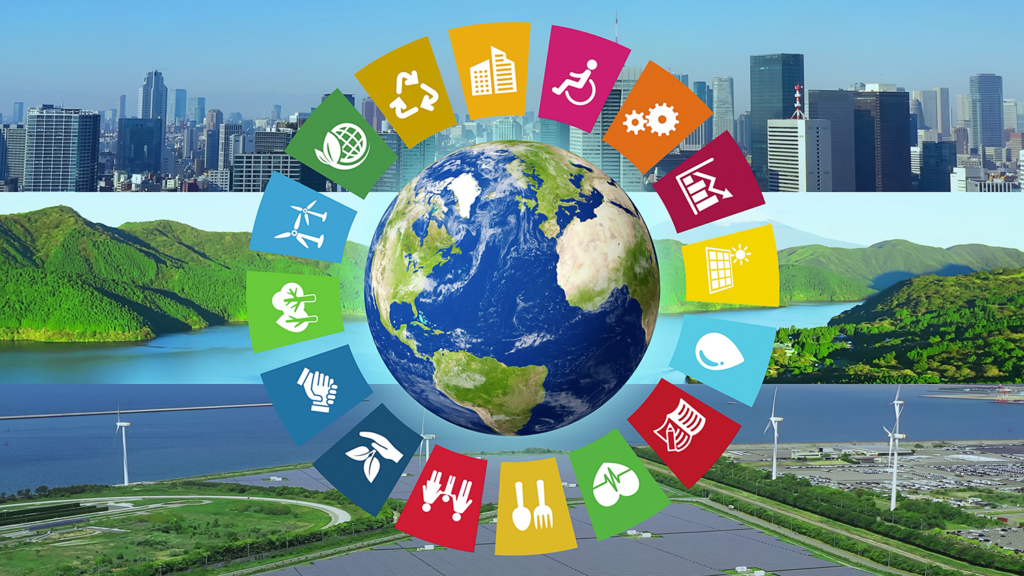Service Programs — Transformative or Detrimental?
Service is an integral part of the learning journey of many students globally, with a large number of schools including service learning as part of their curriculum. When facilitated well, service programs can be transformative for students and their communities, leading to deep learning and positive change. When implemented poorly, service programs have the potential to do more harm than good, disempowering communities and leading to a false sense of saviourism in students, along with other misconceptions.
This article will take a closer look at the concept of best practice service through the lens of a service project by students at UWC South East Asia’s (UWCSEA), Dover Campus in Singapore. It will explore five criteria that are fundamental to a school service program in order to ensure that best practice is being achieved.
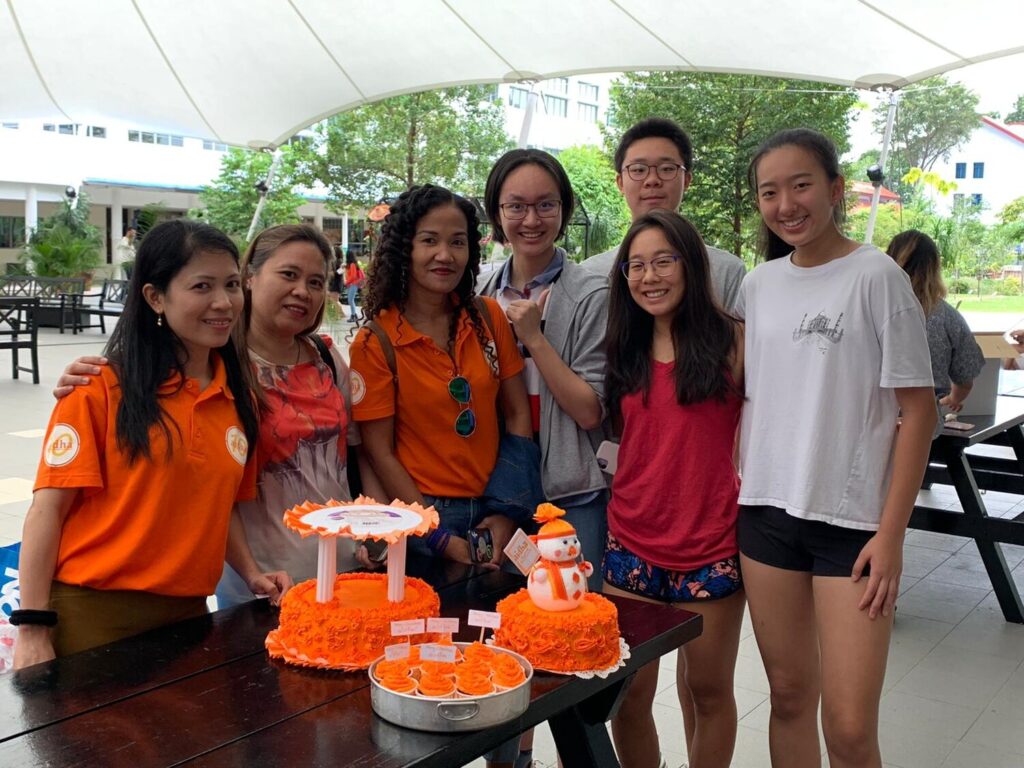
Service at UWCSEA
Service is one of the core learning elements at UWCSEA, and the College has placed a strong focus on its service program since it was first established in 1971. Providing opportunities for students of all ages to engage in age-appropriate service learning opportunities is viewed as a fundamental way to achieve the UWC mission and make “Education a force to unite people, nations and cultures for peace and a sustainable future” (UWCSEA, 2021). UWCSEA views their “mission for Peace and Sustainability as another expression of the global desire to embrace Sustainable Development (UWCSEA, 2021)”. They focus on the 5 Ps outlined in the UN Agenda for Sustainable Development: People, Planet, Prosperity, Peace and Partnership. The 5 Ps offer a structure through which to approach the Sustainable Development Goals and develop understanding. The service learning curriculum at the College has been designed to fit within this interconnected framework, providing real life experiences that work towards its goals (UWCSEA, 2021).
The service program at the College is world-renowned and schools around the globe look to UWCSEA for direction and guidance. The Service Department at the College is acutely aware of the need to ‘get service right’, and equally aware of the issues that can unfold if service programs are not run according to standards of best practice such as those outlined by Orenda Learning (2019), and which are described in the case study below. The College prioritises the ongoing development of their service programme, investing significant resources into ensuring that students of all ages are able to access learning opportunities in service, giving it equal weighting alongside their other four learning programme elements, including academics.
HER Journey
HER Journey is a project that seeks to, “Empower women who are part of the Foreign Domestic Worker (FDW) population working in Singaporean households” (UWCSEA, 2021). The project has been running for two years and has three main areas of focus:
- A Podcast series showcasing real stories about foreign domestic workers in Singapore
- A card game called ‘Empathy Challenge’ that aims to raise empathy for FDWs
- ‘Know Your Rights’ — a series of videos for FDWs
The project has 18 students involved, with Karen (Grade 12), Callista (Grade 11), and Yueyang (Grade 10) overseeing the initiative in a leadership capacity. Whilst the project has been impacted by Covid 19, the students are still actively engaged and focusing their efforts on the online components of their project such as the podcasts.
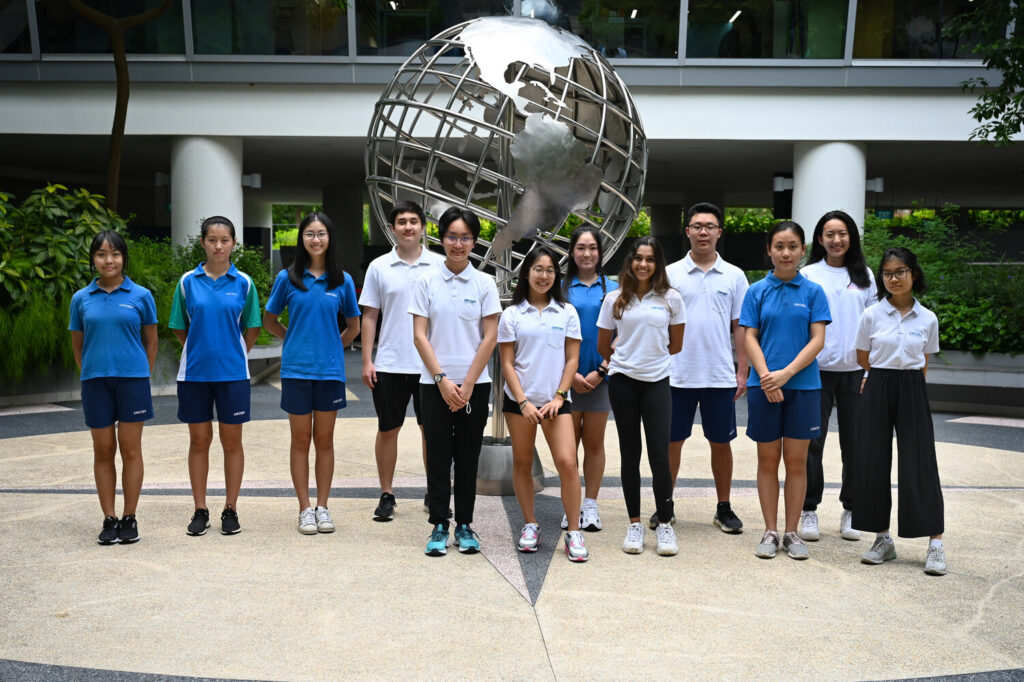
Best Practice Service
1. Is purposeful and aligned with an authentic community need and/or the Sustainable Development Goals.
In order for service to be authentic, it needs to have a clear purpose that addresses a genuine community need and ideally one or more of the Sustainable Development Goals (SDGs). A ‘community need’ is an issue or concern in the local or global community of the students involved. Preferably, finding the community need to address is student driven and something that the students are passionate about. Authenticating the community need is an essential part of the process that involves research and active consultation with stakeholders who are affected by the issue, and/or are already working to address it.
The 17 SDGs provide a “blueprint to achieve a better and more sustainable future for all” (United Nations, 2021) and can serve as a point of reference to ensure that service action is focused in the right place, contributing to the shared vision of sustained global change. Underpinning each SDG is a series of targets, which are more specific and include indicators used to measure progress. Whilst not all community needs will fall under the SDGs and their targets, generally ensuring an alignment is recommended if possible.
HER Journey was the vision of Karen, when she was a Grade 10 student at the College. Karen was participating in a service project called HOME (Humanitarian Organisation for Migration Economics) Cooking Service and was working alongside FDWs who had been mistreated by their employees. Karen says, “In my conversations with the ladies, I learnt about the diverse cultural backgrounds and life stories that domestic workers experienced throughout their migration journey, from motivations to set off for Singapore to their approaches of dealing with employment disputes. To my dismay, these nuances were not often covered in the media, which tended to generalise the FDWs as a homogenous vulnerable foreign worker population”.
Karen decided she wanted to take further action to support women in this demographic, and the vision for HER Journey was conceived. Whilst Karen had already learnt about this genuine issue in her local Singapore community through first hand experience with those affected, Karen and other interested students went on to conduct extensive further research. They conducted interviews with FDWs, meeting regularly with representatives from partner organisations to discuss and revise ideas for action, and consulting relevant literature in the field. This helped them to understand the issue from multiple perspectives and ensure their action would be authentic and meaningful.
The work of HER Journey addresses aspects of SDG 5: Achieve Gender Equality and Empower All Women and Girls and SDG 8: Decent Work and Economic Growth. The project specifically addresses a number of targets including 5.B: Promote Empowerment of Women Through Technology: Enhance the use of enabling technology, in particular information and communications technology, to promote the empowerment of women and Target 8.8: Protect Labour Rights and Promote Safe Working Environments — for all workers, including migrant workers, in particular women migrants, and those in precarious employment.
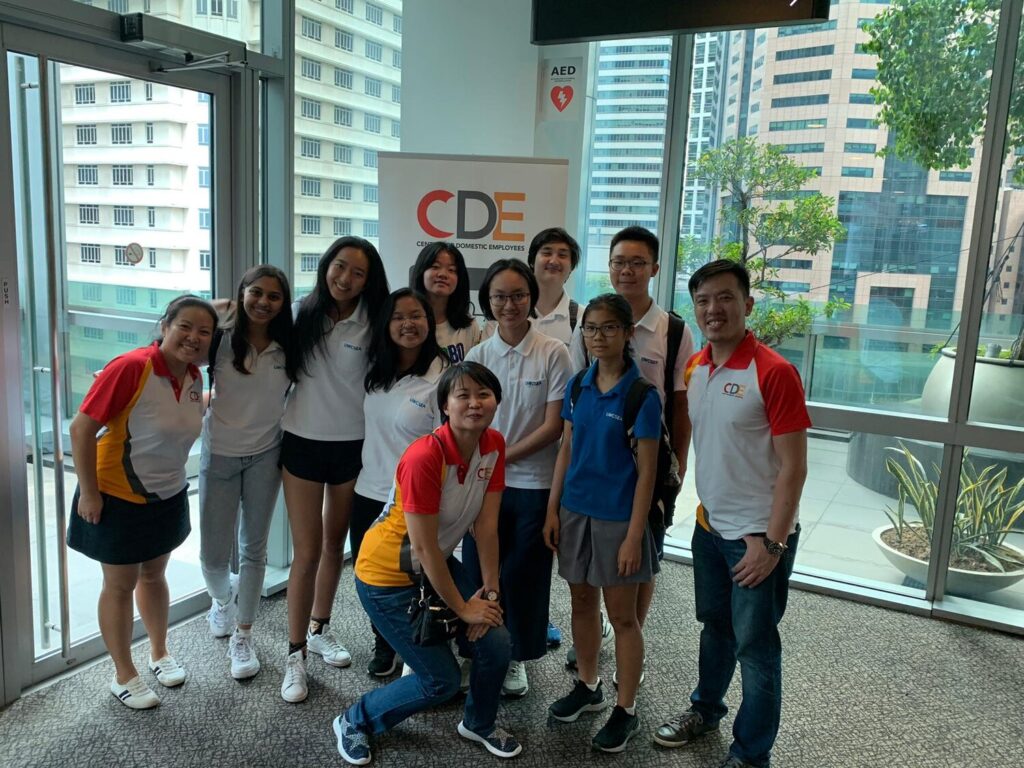
2. Follows a clear process such as the Stages of Service Learning.
One of the fundamental components of best practice service is the presence of a cycle which guides any person serving in a community through a series of steps before and after taking action. This helps to alleviate tokenistic service that is lacking depth, along with ill informed and misguided attempts to serve. One of the most common cycles is Cathryn Berger Kaye’s Stages of Service Learning (2004), which also underpins the Creativity, Activity and Service stages in the International Baccalaureate Diploma Program. This process includes the steps of investigation, preparation, action, reflection and demonstration. These stages are not always taken in linear steps, rather as feedback loops that are interconnected, with reflection being an important part of the cyclical process. The students involved in HER Journey have worked through the stages of this model over the past two years, returning to it at different points as needed, for example when ideating new initiatives, reviewing their progress or facing challenges such as those presented by Covid 19. The students remarked that following this kind of work flow has come quite naturally as they addressed the community need.
An example of this is the reflection process the students needed to go through as they tried to build a working relationship with a Singaporean Non-Government Organisation (NGO). The group remarked that their relationship with this particular NGO had challenges. Karen explains that “despite proposing interview requests frequently, we were unable to secure an approval or concrete action agenda from the NGO partner”. After several unsuccessful meetings the team went into a reflection process to discover what the issue was. Their findings were that the goals of the NGO were not aligned with the goals of HER Journey. The NGO wanted the student group to promote their course offering in the UWC community and HER Journey was more interested in finding out how the journey of the FDWs transformed after taking the classes. As a result, Karen explains that “we started to identify more with self-organised workers’ communities, whose members are more willing to share with us their experiences for non-advertisement reasons. This trial and error process led us to realise the importance of aligned interests prior to starting collaboration”.
Something that stands out about HER Journey is how much investigation the students did into the perceived issue before taking action. As outlined above, the students spent a significant amount of time in the investigation stage before taking action. Students who recognise the importance of investigation as they address a community need are far more likely to truly understand the service work they are undertaking. This includes being informed about the context of the community need and able to view the bigger picture rather than just the isolated issue. Aware students understand that there are historical, political, socio-cultural, environmental and economic factors that all have influences and can take a whole systems approach to leverage change.
3. Is reciprocal.
Reciprocity is defined as an “ongoing process of exchange between two parties for mutual benefit, where both the students and the partner organisation or the community gain in a balanced way” (Orenda Learning, 2019). Though they will not benefit in the same ways, the gains should be equitable. Lough and Oppenheim (2017) suggest that when reciprocity is low ‘service’ can “reinforce power differences between the giver and receiver” (Lough and Oppenheim, 2017). They also outline three areas that need focus to ensure service is reciprocal: building relationships over time, ensuring mutual benefit and joint decision making.
The students at HER Journey ensure reciprocity through their consultative approach. They have put significant effort into building relationships with local NGOs such as the Humanitarian Organisation for Migration Economics (HOME) and the Centre for Domestic Employees, meeting with them regularly to discuss and revise their projects. They also made connections with women employed as FDWs and consulted them throughout their process, asking for feedback at specific times. In one survey that the students sent out, they were told that their podcasts “portray workers’ stories in a realistic way” and that listeners felt that they could “easily empathise” with the stories shared. All the respondents also said that the podcasts helped them to make better decisions when transferring between employers.
When the students were asked about the benefits they gained from the project, they share that it has enabled them to understand the struggles of the FDWs in more depth, and develop an increased level of empathy. Yueyang says it has empowered her to “become a voice for minorities and create cultural change through raising awareness”.
4. Involves building meaningful relationships.
The ability to build positive relationships is fundamental to best practice service. Whether students are working with people, animals or the environment it is a given that they will interact with others as they undertake their work. These relationships need to be consultative and collaborative, as well as open-hearted and compassionate. As outlined above, the ability to build consultative and collaborative relationships is closely tied to reciprocity. The better the relationships, the more reciprocal service work can be. The depth of the relationships forged can also help to ensure that the project is meeting its targets to address a genuine community need and that the students are working in a way that other stakeholders are comfortable with and supportive of. Better relationships generally mean increased communication and support feedback along with reflective practice.
The students at HER Journey highlight the relationships they have built with women who are FDWs as part of the reason they are so passionate about the cause. Getting to know some of the issues the women face, that HER Journey seeks to address, has helped them to get to the core of their challenge. Of course, this has also led to an increase in compassion in the students as they are able to hear the stories of the FDWs first hand and discuss solutions.
The ‘Empathy Challenge’ is a series of cards that cover issues such as labour rights violations and highlight real life experiences of FDWs. The game supports the deepening of relationships, in this case between the FDWs and their employers. As part of this project, students from HER Journey invited FDWs and their employers to sit down together at events and play the game, taking on each other’s real life role. Callista explains “we were able to maintain positive relationships with FDWs through participating in the activities hosted by the NGOs and having conversations with FDWs. It is often off-line meetings that are most effective in establishing emotional ties, so Covid has indeed been quite a challenge for us”. Callista also shares, “I’ve grown up being raised by domestic workers. Though I’ve never really become friends with any of the FDWs in Singapore, I care for them deeply. When I hear their stories, I recognise them from the lenses of the women who’d taken care of me in my childhood”.
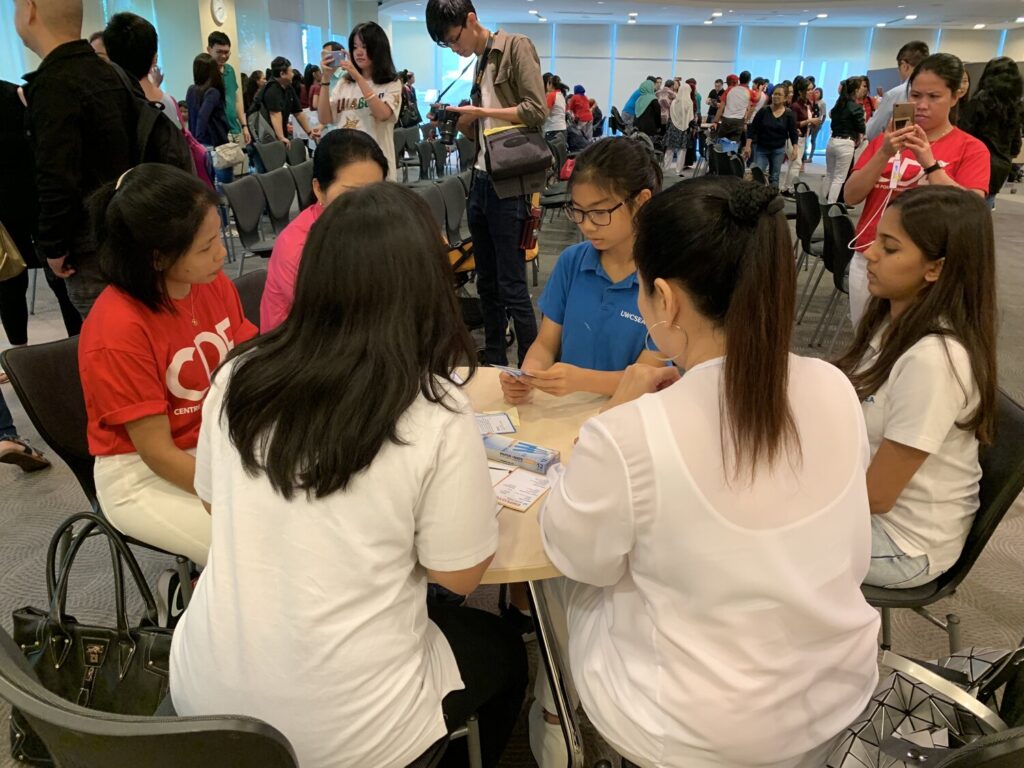
5. Takes place over an extended period of time, but also promotes community self-reliance.
Service projects that take place over an extended period of time allow students to become more deeply immersed in the aspects of the community need being addressed.
Longevity allows space for a full cycle of service to be undertaken, and sometimes for the cycle to be revisited numerous times. It allows students to deepen their understanding of the context of the community need, stakeholders and partner organisations they are working alongside, and build effective and lasting relationships. The longer the service experience, the more time students have to work on developing their skills and qualities in order to embody the attributes they need to support their project in a productive manner. Brief service experiences can be tokenistic and lacking depth, as students are unable to take the time to truly understand the work they are doing, integrate with the people they are working with, and ideate and reflect on the solutions they offer.
Community self reliance is the ability for a community to make empowered choices and meet their own needs without the requirement of external support. Promoting self-reliance in service ensures that communities have dignity and independence long term, and that they are able to provide for themselves without having to rely on interventions from outside sources. The concept of longevity needs to be considered hand in hand with the building of community self reliance. This is particularly important when service projects support communities financially. Establishing long term, sustainable connections and relationships in which all parties are working towards shared goals of community self reliance and empowerment is crucial to best practice service.
As already outlined, HER Journey has been running for two years. This has allowed ample time for the students to research, ideate and launch three separate initiatives that address the identified community need. HER Journey was set up as a Global Concerns (GC) service project at the College. These are student led but teacher facilitated initiatives covering a range of activities and projects. In the High School, students can either choose existing GC groups to join or propose their own initiatives. If they choose to propose their own initiatives they need to pitch it to the GC Executive group which is student run. The GC Executive approves new projects based on a strict criteria with the awareness that the new GC will be a long standing initiative at the College more than likely outlasting the students that set it up as they will graduate over the coming years. The GC program at UWCSEA ensures project longevity in order to achieve what has been outlined above, providing a framework for them to last year after year.
HER Journey initiatives seek to build self-reliance in the community they work within by focusing their attention on projects that raise awareness and support the personal empowerment of the people they serve. For example, their podcast series offers support and advice to FDWs, providing a space for the women to share their stories and information with others in their community. They are also working on making self-guidance videos for FDWs that will be shared on their website. Callista mentions that this is one of the more challenging areas for them, due to some issues with the NGOs they are working with and the restrictions presented by Covid, but they are persevering and hope to build this element more deeply into their long term plans.
In summary, the carefully thought out service program frameworks at UWCSEA support the evolution of best practice projects such as HER Journey. Ensuring student service programs are undertaken as positively as possible is the responsibility of the school, and achieved by passionate students such as those involved with HER Journey.
By Alice Whitehead
References
Kaye, C. B. (2004). The complete guide to service learning: Proven, practical ways to engage students in civic responsibility, academic curriculum, & social action. Free Spirit Publishing.
Lough, B. J., & Oppenheim, W. (2017). Revisiting reciprocity in international volunteering. Progress in development studies, 17(3), 197–213.
UWC of South East Asia. (2021). Educating for Sustainable Development. https://www.uwcsea.edu.sg/our-big-ideas/sustainable-development
UWC of South East Asia. (2021). Global Service. https://www.uwcsea.edu.sg/learning/service/global-service
UWC of South East Asia. (2021). Guiding Statements. https://www.uwcsea.edu.sg/about/guiding-statements#fs-panel-20937
United Nations. (2021). Take Action for the Sustainable Development Goals. https://www.un.org/sustainabledevelopment/sustainable-development-goals/#:~:text=The%20Sustainable%20Development%20Goals%20are,environmental%20degradation%2C%20peace%20and%20justice
Orenda Learning. (2019). Be The Change High School [Online Program]. bethechange.brightspace.com

Orenda Learning is an impact driven organisation that supports active citizenship through the delivery of best practice service programs. Our Strategic Intent is to equip young people with crucial knowledge, skills, qualities and the agency to affect positive global transformation in our rapidly changing and complex world.
